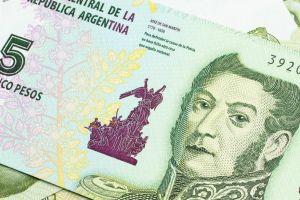Bitcoin-powered Alternative to Five Peso Note Issued in Argentina
Argentina has phased out its popular five peso note – but a cryptocurrency company has issued something of a digital replacement – in the form of a commemorative coin with a value redeemable in bitcoin (BTC).

Per TyN Magazine, the five peso bill featured a portrait of the 19th-century historical figure José de San Martín, known as “El Libertador of Argentina.”
San Martín was a Spanish-Argentine general who led many South American nations – including Argentina – in their fight for independence from the Spanish Empire in the early 1800s.
The public’s affection for San Martín is believed to be one of the reasons why many Argentines were so sad to see the five peso note (USD 0.08) go out of circulation on the last day of February.
But a company named Ripio says it has issued a commemorative coin that features a portrait of San Martín on the front, while on its inverse side is a QR code that, when activated, will allow its owner to access bitcoin funds.
The same media outlet quotes Sebastián Serrano, the CEO of Ripio, as equating San Martín’s view of freedom with the financial independence that bitcoin can offer.
The CEO stated,
“Bitcoin is the first step towards a new economy, and a future that is more transparent, democratic and accessible than that offered by traditional financial services. This coin […] carries the legacy of San Martín to the economy of the future.”
Meanwhile, also in Argentina, the provincial deputy of Mendoza Josefina Canale has won both support and criticism after proposing the launch of a local digital coin.
Canale says that if the province were to launch its own digital token, it would allow Mendoza to assert more financial independence.
The politician took to Twitter to state that she was currently “looking into” proposals to launch a local version of a Central Bank Digital Currency (CBDC) for Mendoza, and even allow residents to pay taxes in the token.
However, although many commenters voiced their support, a large number tweeted their objections, saying the project would likely hit too many legal hurdles.




